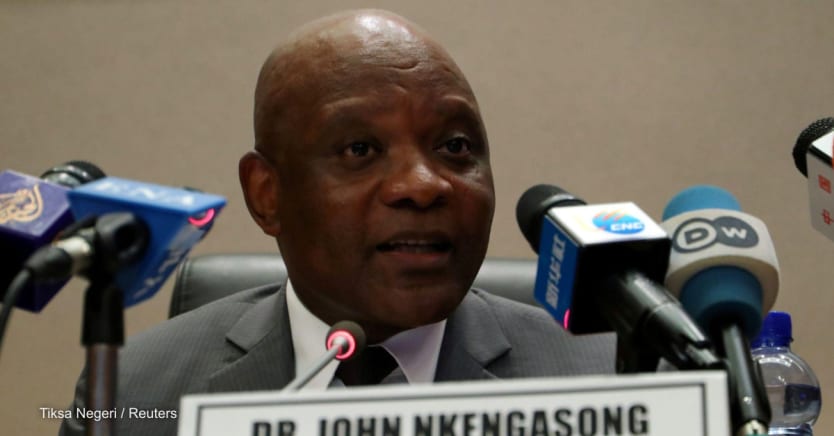
Dr. John Nkengasong appeared before the U.S. Senate Foreign Relations Committee on Tuesday, nearly six months after the White House announced its intent to nominate him to serve as U.S. global AIDS coordinator.
Currently the director of the Africa Centres for Disease Control and Prevention — a position he holds on secondment from the U.S. government — Nkengasong described to lawmakers how he would lead the U.S. President’s Emergency Plan for AIDS Relief, or PEPFAR, if the Senate votes to confirm him.
Nkengasong, a virologist from Cameroon, would be the first person of African origin to lead the flagship HIV initiative, which has been under the direction of an acting coordinator since Deborah Birx joined the White House’s coronavirus task force in February 2020 and subsequently retired from government service.
In those two years, the global fight against HIV has been severely disrupted by COVID-19, and the pandemic has sparked questions about how PEPFAR and other U.S. global health programs might be reorganized to address broader issues of global health security.
Nkengasong told lawmakers that while the pandemic has negatively affected some HIV programs, those same platforms have been used to scale up vaccination against COVID-19.
“I think it’s really an opportune moment to harness that investment that we’ve put in place for the last 20 years to make it a more robust and efficient system in fighting the HIV pandemic as well as other emerging diseases,” he said.
In his opening remarks, Nkengasong, who was involved in the creation of PEPFAR in 2003, said that the initiative’s early challenge was to help build health systems from the ground up.
The must-read weekly newsletter for exclusive global health news and insider insights.
“The goal now must shift,” he said, calling for a focus on ensuring “sustainable” and “resilient” services and systems that can prevent and respond to HIV in addition to other diseases.
“For this to happen, it is my belief that we need to capitalize on the capacity and experience of those in the countries where we work, coming to the table with a deep respect for their perspectives and needs, and taking into account their knowledge and local expertise,” Nkengasong said.
In his written testimony, Nkengasong added that PEPFAR should work in “respectful partnership and accountability” with local leaders and regional institutions.
His emphasis on these relationships contrasts with some criticisms of PEPFAR’s approach that surfaced near the end of Birx’s tenure.
In February 2020, the U.S. State Department’s Office of Inspector General published an audit that included multiple complaints from members of PEPFAR’s country teams, who described the initiative’s leadership as “dictatorial” and uninterested in building consensus.
Nkengasong faced little pushback from lawmakers, other than a brief exchange with Sen. Bill Hagerty, a Republican from Tennessee, over the best course of action for determining the origins of the coronavirus.
“We can only do that through cooperation and support for a strengthened [World Health Organization],” Nkengasong said.
“I’m surprised that you’d look to the WHO, given their role and the malign influence China has had at the WHO. But with reform, perhaps that is the correct answer,” Hagerty responded.
A full Senate vote on Nkengasong’s nomination has not yet been scheduled. Global health advocates had criticized President Joe Biden’s administration for waiting eight months to announce a nominee for the coordinator position.









